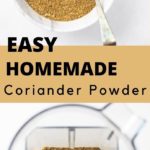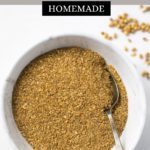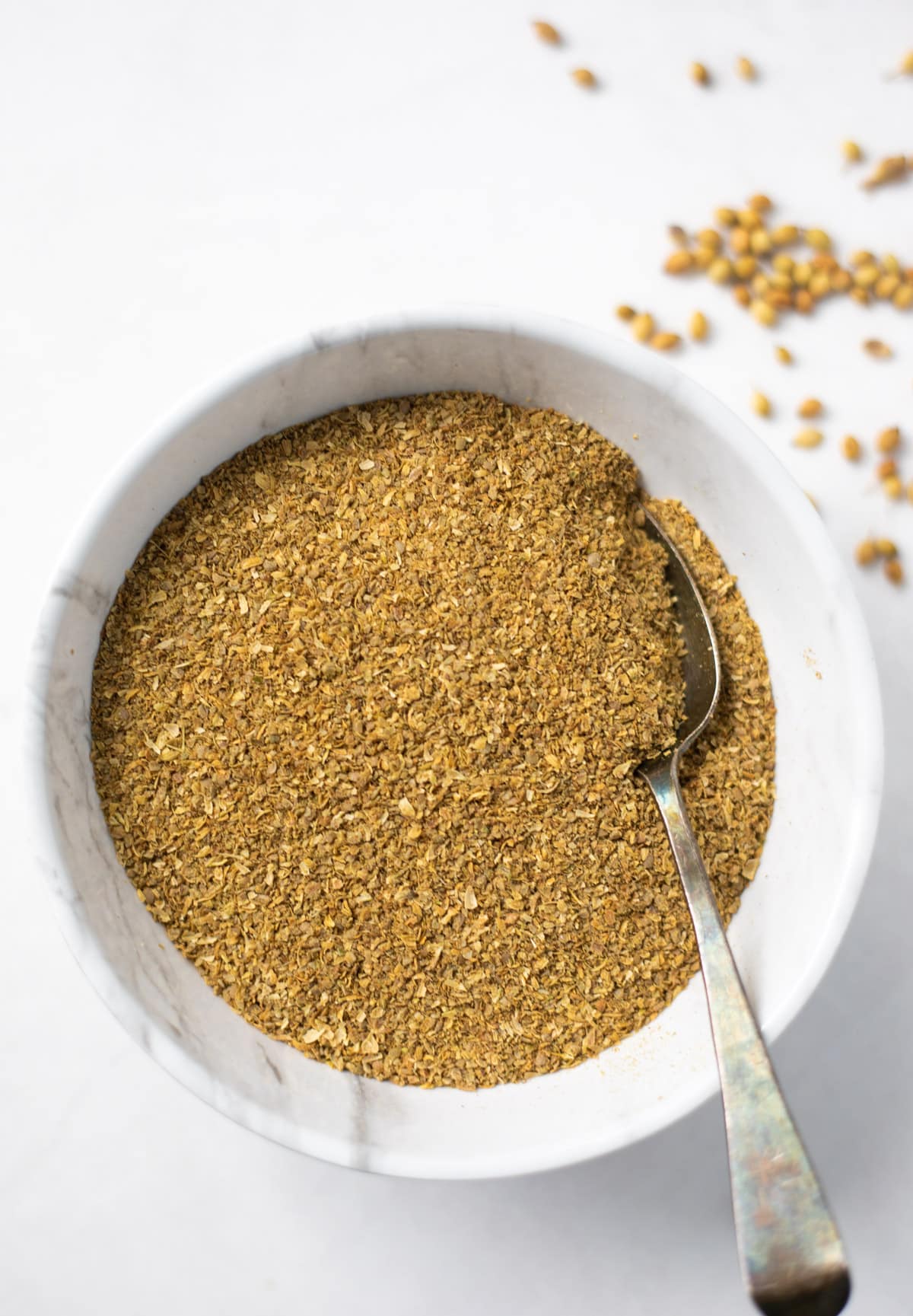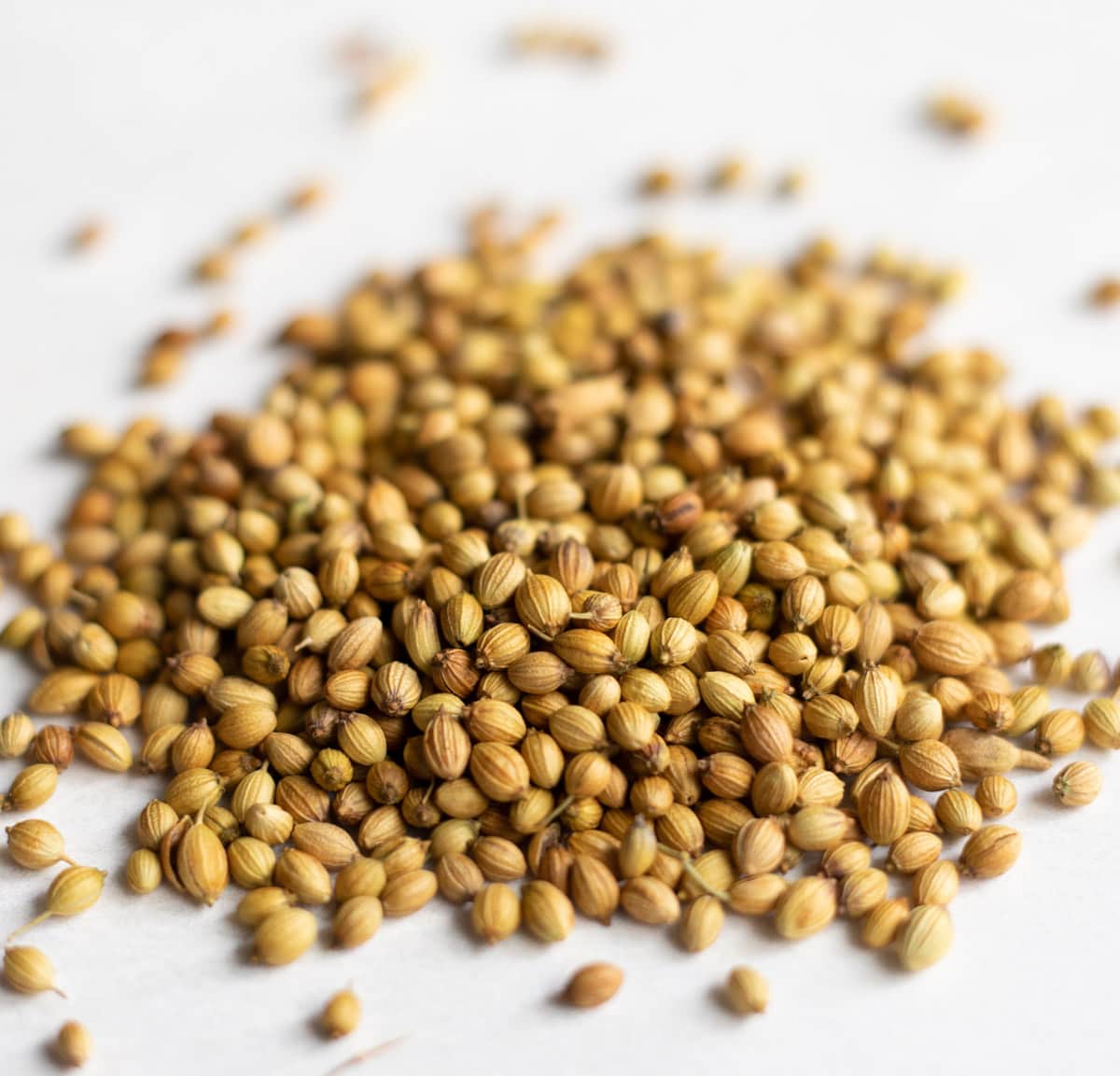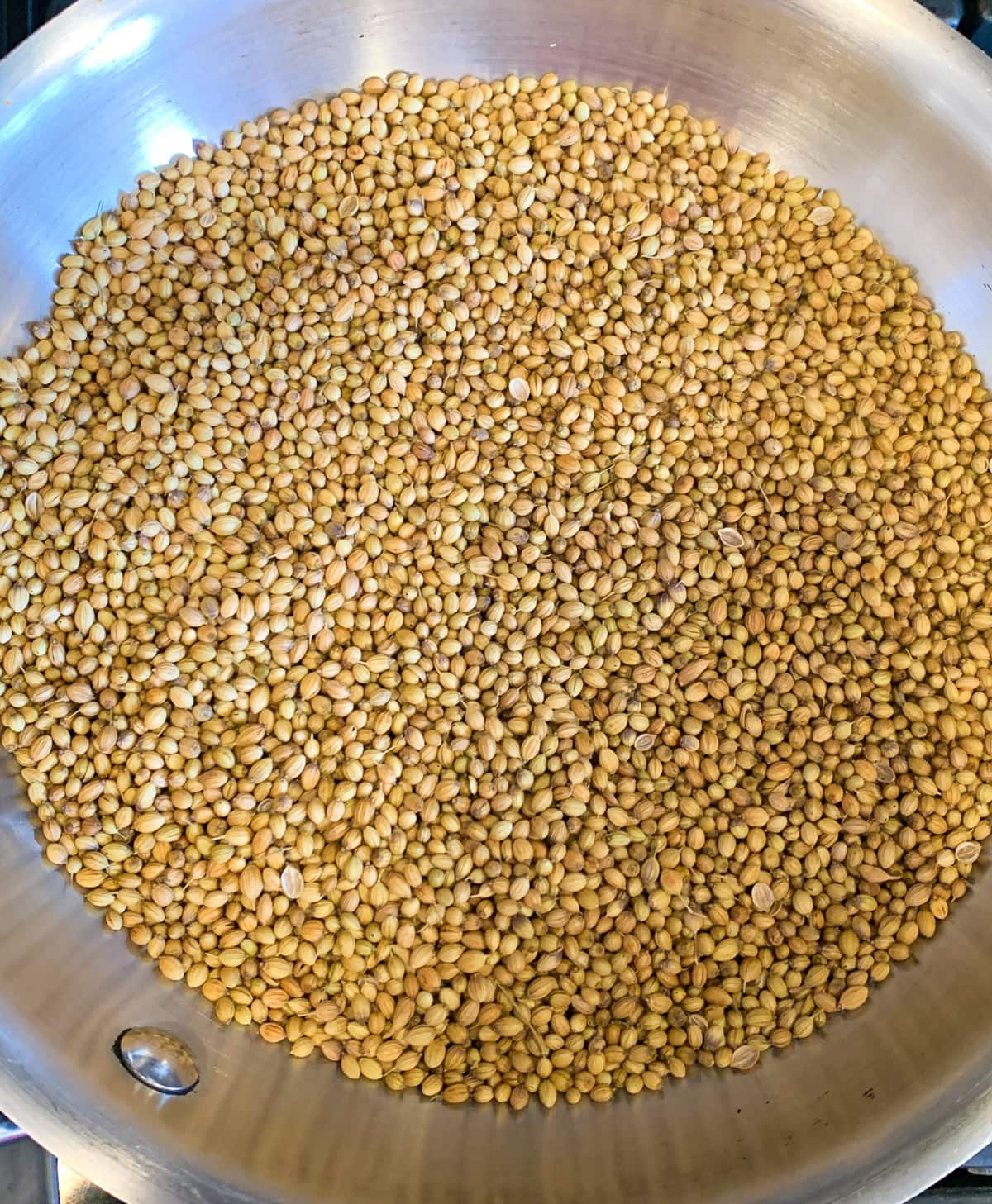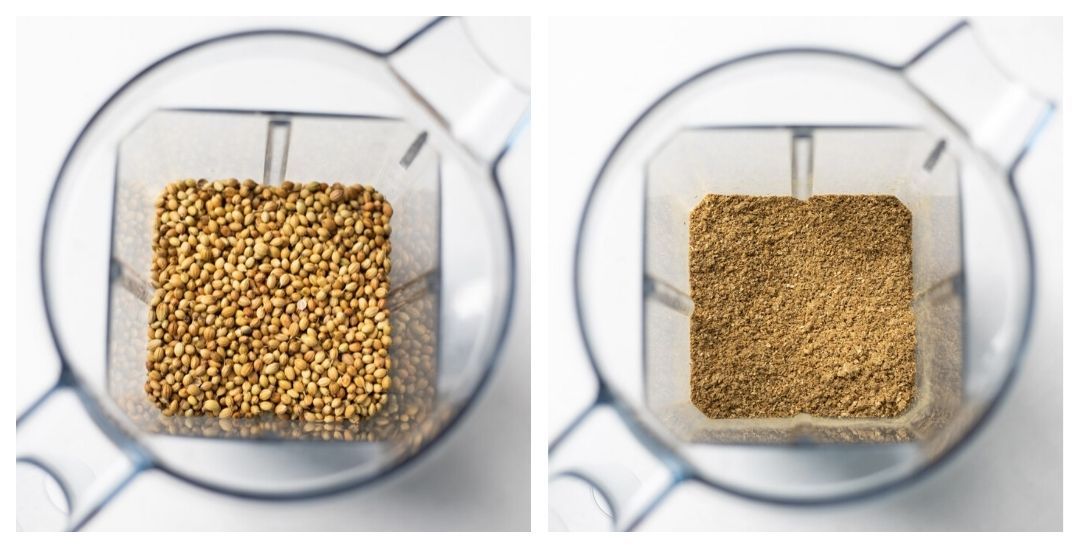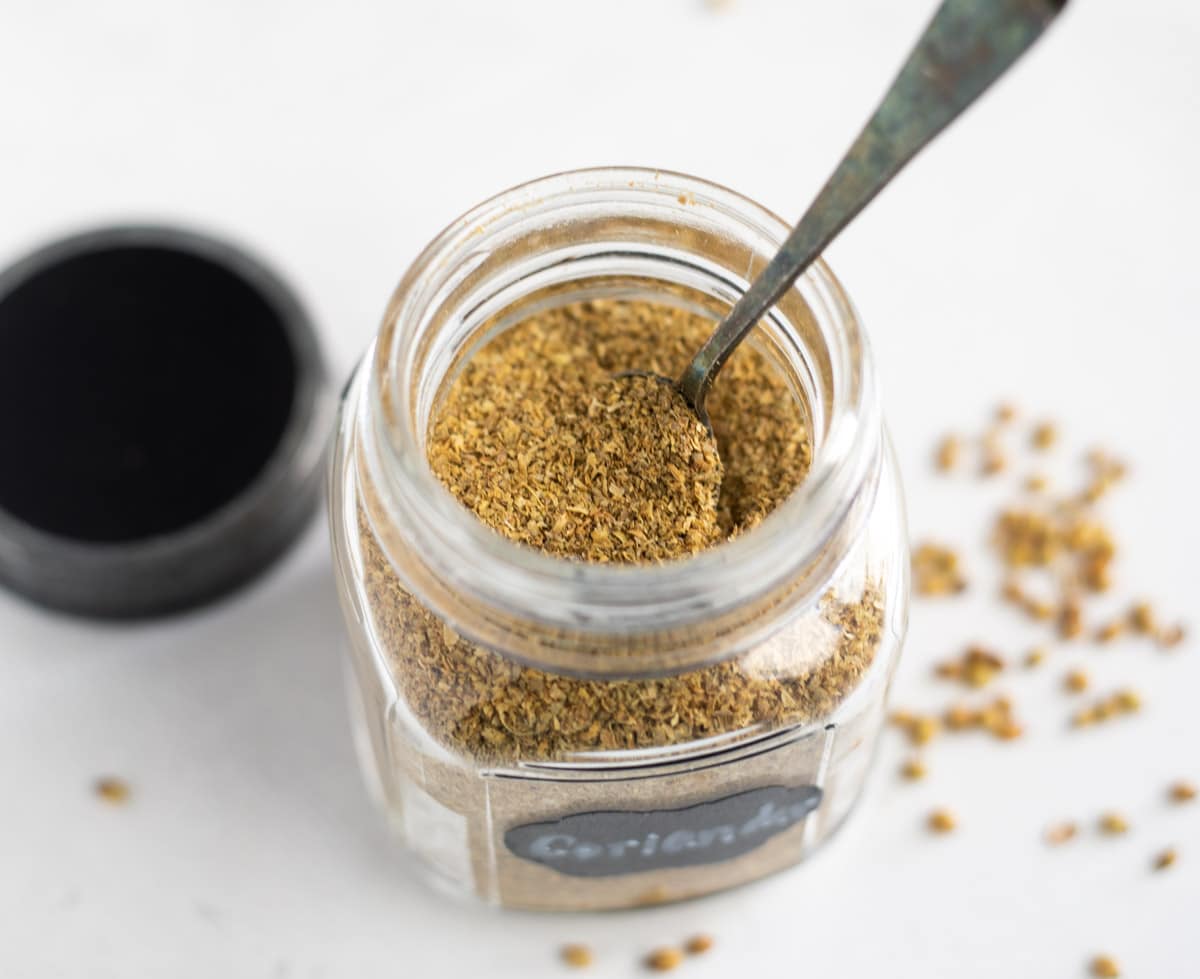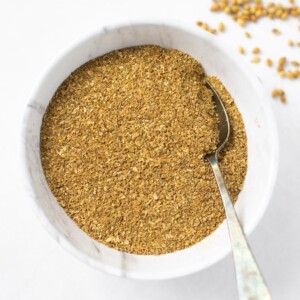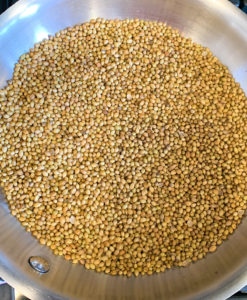We always have a ready batch of ground coriander and dhaniya powder at home. Ground coriander powder is used both separately and as part of many spice blend in Indian cooking. You also get them in stores, but I prefer the homemade version as it is so easy to make and I can be sure there are no additives. Also, check out authentic homemade North Indian Cumin Powder, Garam Masala, and Chai Masala recipe. But let’s start with learning about coriander seeds, their benefits, and uses.
What is Coriander Seeds?
Coriander seeds are the fruit or seeds of the cilantro plant. It is widely used as a seasoning in many cuisines around the world. The seeds actually bolt from the cilantro plant when they stop growing. The coriander seed is small, hard, and brownish and is a must component of pickling spices. The coriander seed has a pleasant and spicy aroma. It is called Dhaniya seeds in Hindi. Coriander seeds are not the same as cumin seeds. See here for more details about Cumin. In Indian cuisine, these seeds are used extensively as whole or as ground coriander powder. Make sure to store them in a dry and cool place away from direct heat. If you are storing them for a long time, then freeze the seeds to lock away their crispness, flavor, and aroma. Curious about Indian Spices? Check out my detailed guide for Indian Spices & Herbs.
Benefits of Coriander
While coriander gives out a distinctive and refreshing aroma, it is also packed with so many benefits:
They help in maintaining your blood glucose that in turn prevent diabetes. It has many nutrients like Vitamin A, Riboflavin, Vitamin C and Folic acid. Helps in curing digestive problems. Is anti-inflammatory and cures skin problems. It is rich in dietary fiber and is an excellent source of minerals like Zinc, Potassium, Calcium, and many more.
What is Coriander Powder?
Coriander powder, also called Dhaniya powder is a staple spice in many cuisines. As the name suggests, ground coriander is made from freshly roasted coriander seeds. Nevertheless, both have different flavor profiles. When used as a whole, coriander seeds add the right level of spiciness, but as powder, they mix and blend with the dish and lift its overall taste profile. While coriander seeds can be stored for a longer time, ground coriander is best when stored in small batches. They tend to lose out their aroma soon, so I usually make them in small batches.
Coriander Seeds to Ground Coriander Powder
You can make coriander powder in two ways- by roasting the seeds and grinding in a batch or by coarsely crushing the seeds for a one time use. I prefer to roast and grind in a batch, as it is easier for me and the ground coriander powder is ready for my everyday cooking.
Roasting Coriander Seeds
Let’s start with dry-roasting the coriander seeds. While roasting, the coriander seeds will release oils that will darken the seeds and increase the strength of the flavor profile. This also helps in removing moisture that results in a longer shelf-life
Use a heavy bottom pan for roasting the coriander seeds. As they tend to darken easily, it is better to use a heavy bottom pan. Heat the pan on medium heat and add the coriander seeds. Keep stirring at regular intervals while roasting. Keep evenly roasting them till you get a wafting aroma of the seeds. Also, keep a lookout for the slight change in color when dry roasting the seeds Once you see the aroma and color, switch off the heat and transfer the seeds to a dry plate to cool them.
Note: Many people prefer to skip roasting the coriander seeds, which is fine too. As coriander powder is typically used while cooking, and will be cooked along with the dish it is added to.
Grinding Coriander Powder
Once the roasted coriander seeds cool down to room temperature, transfer them to the grinder to make a coarse or fine powder. You can also use a spice grinder.
Tips to Make Perfect Coriander Powder
Make sure you roast the coriander seeds at medium heat as they tend to burn easily. Keep stirring the seeds for an even roast. If using a grinder to make the powder, double-check to see whether the seeds have completely cooled down. They should be at room temperature while grinding. If not, the seeds will release moisture, which will reduce the shelf life. Store the ground coriander powder in an air-tight container, preferably glass to keep them fresh for longer.
How to use Coriander Powder?
I usually add coriander powder along with other spices such as turmeric, cumin, etc during coking.
Even though coriander seeds and ground coriander have the same ancestry, they are quite different and have their individual flavor profiles. Whole coriander seeds are added to spice blends and coriander powder is added to dishes.
Additionally, if you are wondering if they can be substituted for one another, then the answer is no as they have completely different taste profiles.
Where to buy?
Whole coriander seeds can be found in the spice aisle of most grocery stores. They are also available at stores that cater to the Latin American, Indian, North African, or Middle Eastern cuisine. You can also find ground coriander powder in the spice section of most grocery stores. Hope you try this ground coriander powder and whip up flavorful dishes. Check out other cooking 101 posts:
Curry Leaves – How to buy, use and store? How to use and store Green Chili Peppers How to store ginger? How to make Chickpea Flour?
